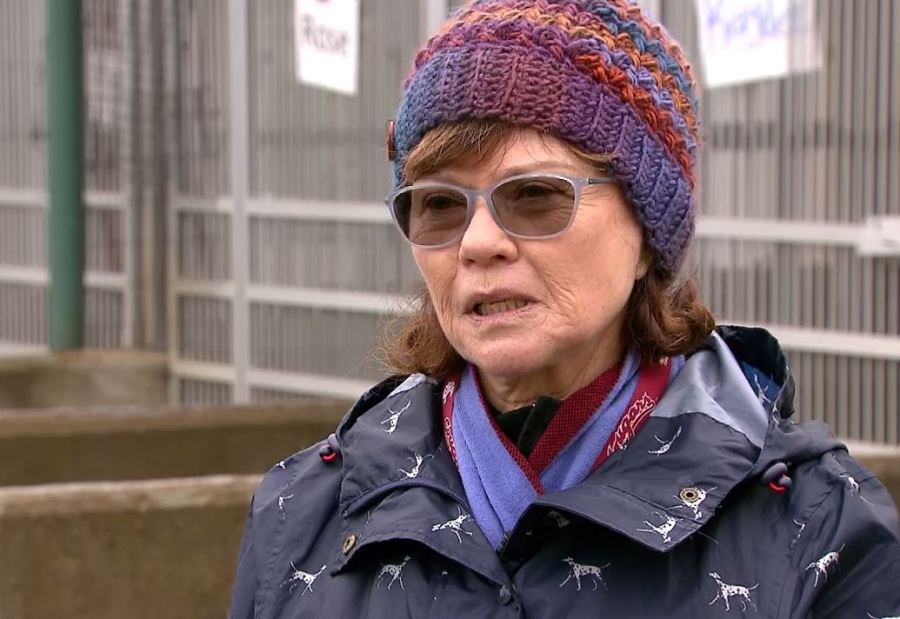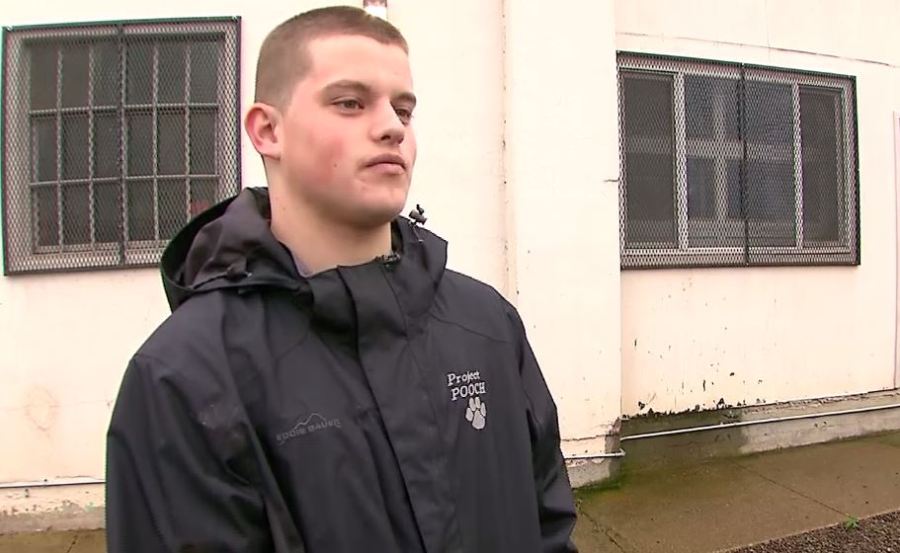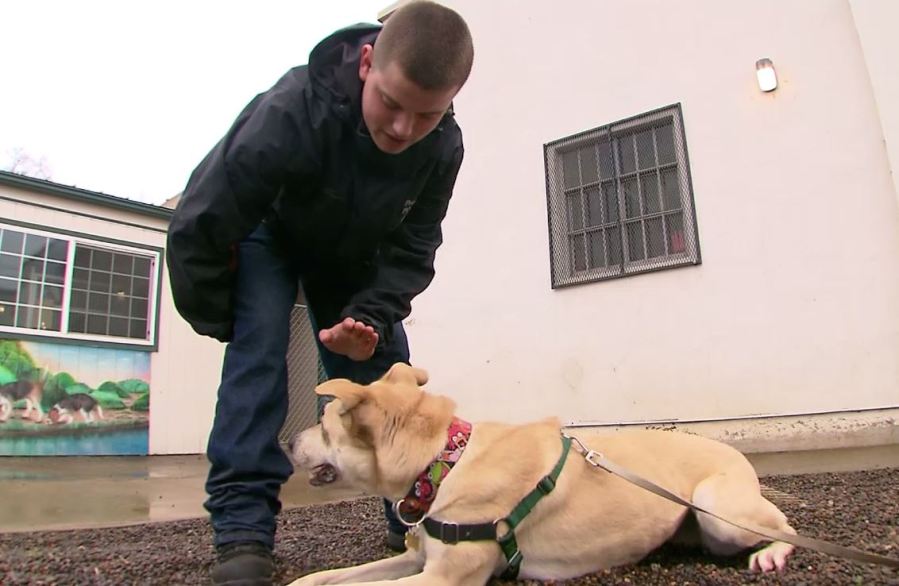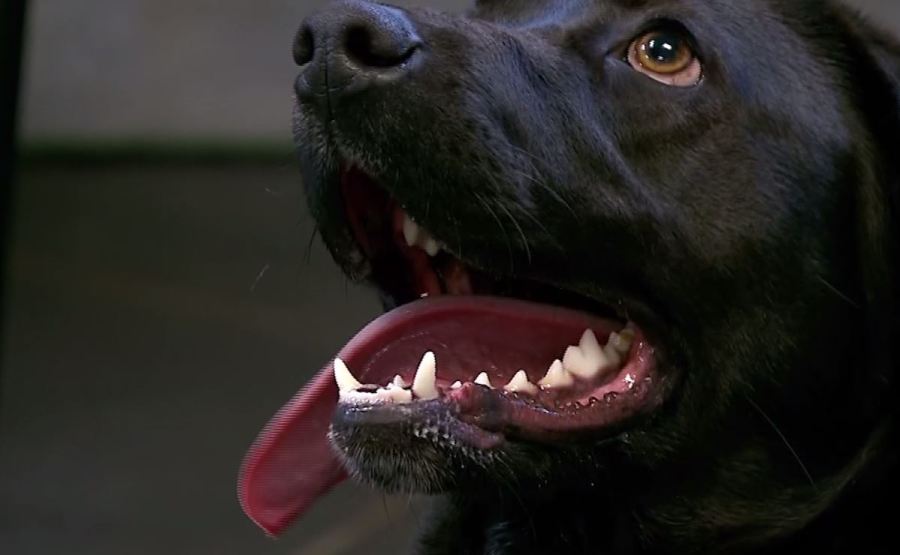PORTLAND, Ore. (KOIN) — For nearly 30 years, a local woman has dedicated her life to helping dogs find their forever homes. They’re often at other shelters, at risk of being put down, but it’s who she discovered to train them and save their lives that makes her this week’s Women Crush Wednesday.

Since 1993, Joan Dalton has spent time at a local prison—not behind bars but at a fenced-in kennel at the Maclaren Youth Correction Facility in Woodburn. She founded Project Pooch, a non-profit rescue group that begs the question, who rescues who?
“I love working with teenagers with problems, and I love working with dogs. It was just a great match and it’s just been my life’s work,” said Dalton. “I’m very humbled by the results of the program, but I always say it would never work unless the youth make it work.”
Take 17-year-old Jaydon for example, whose job is right now is to train Rose, a 2-year-old shepherd mix. Project Pooch hired Jaydon three months ago.
“I’ve learned a lot about responsibility, patience, and compassion for other life,” said Jaydon. “It’s kind of like, where no one else will take them, they’ve just given up on these dogs. That’s kind of like a lot of people here didn’t have such a good home life or got given up on. That’s why they end up in a place like this.”
“In a way, we’re kind of the same,” said Jaydon.
He and a team of teenagers are training 15 dogs so that they can pass the coveted Canine Good Citizen Test—a standard most shelters don’t meet. Over the years, the program has saved some 800 pooches.

“Seeing a dog that comes in, that’s not obedient or doesn’t know much, and by the time they leave they know all their basic commands, their manners are way better,” said Jaydon.
For Dion, Project Pooch has helped him become a more mature person. He first came to Hillcrest Youth Correctional Facility as a 17-year-old. Now 22, his experience with the program has not only helped him overcome his fear of dogs, but has also made him into a mentor for other teens.
“I feel like I’ve become a nicer person. I look at a lot of things differently and try to help a lot more people than I would have,” said Dion. “I feel like it helps me grow as a person who wants to be a father or a big brother or a good member of society.”
He has formed close bonds with the dogs that come through Project Pooch, and they have become a consistent and reliable part of his day.
“My favorite thing is coming in every morning and knowing my dog will be there to greet me and just love me,” said Dion. He also trusts the process of the program itself. “Especially because we know Project Pooch doesn’t adopt to anybody—they have to go to a good house. They have to check the house, make sure it has a yard. And me knowing that makes it a lot easier to let the dog go.”

Despite the program’s proven success, it wasn’t easy to get it started in the beginning.
“It took time to get approval from the administrators because they thought I was some crazy dog lady that was going to have all these dogs running around campus,” said Dalton.
That changed over time. The proof was in their performance and backed up by science. Dalton said the teens are able to use what they’re learning about in their own treatment to help some of the dogs as well. It is a tale of transformation that has gone to the dogs in the best way possible.
“A lot of people come here and they just sit here and waste time,” said Jaydon. “I’m glad I was able to do something to better myself and dogs.”
Jaydon will be incarcerated for one more year and said he eventually wants to work in a field that helps other people. As for the dogs, if they don’t get adopted, Dalton lets them live out their days at a sanctuary she created at her own house.

Two social scientists studied Project Pooch and found the youth in fact improved in areas of honesty, empathy, and self-confidence.
“It’s really true when they learn to make a commitment to take care of this dog, and in the process, learn from the dog and learn for themselves and follow their treatment program,” said Dalton. “It’s changed me because I can look at them and I have such gratitude.”